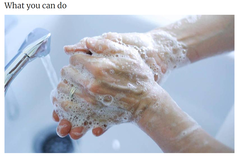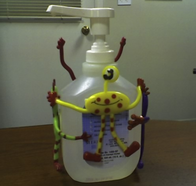
Maureen Spencer, a seasoned Infection Preventionist with over 50 years of experience, holds board certification in infection control (CIC). Her contributions to the field have been remarkable, earning her prestigious accolades and recognition as an early Pioneer in Infection Control. In 1992, Maureen completed a Master’s of Education in Health Promotion, focusing on social learning theory and strategies to transform beliefs, attitudes, and behaviors toward health goals.
During that time, she served as the Director of the Infection Control Unit at Massachusetts General Hospital (MGH) in Boston. MGH, with over 1000 beds, 22,000 employees, and locations in three cities, was in the process of implementing the Blood Borne Pathogen Standard. At MGH, Maureen successfully introduced infection control practices using a multi-media kit and local department champions. The “train the trainer” program garnered enthusiastic participation from staff. Later, in 2003, she joined New England Baptist Hospital (NEBH), an orthopedic center of excellence in Boston. Her task was to implement the 2002 CDC Guideline on Hand Hygiene. To kick off the campaign, Maureen secured funding from a $2000.00 endowment to the Infectious Disease Department. The resulting weeklong campaign in the cafeteria and nursing units was a resounding success, leading to an annual hand hygiene budget for ongoing campaigns. NEBH hosted two spring and two fall campaigns, along with a larger hand hygiene fair called “The Bug Beat Fair” each summer. The impactful work at NEBH is documented in various abstracts and posters.
In 2011, Maureen took on the role of Corporate Director, Infection Prevention for Universal Health Services, overseeing a 28-acute care hospital system across 7 states. As she traveled with the corporate survey team, she continued to roll out hand hygiene campaigns, emphasizing the principles of social learning theory. These principles included role modeling, self-efficacy, reinforcement and feedback, contracting, and reciprocity. By engaging staff through raffles, prizes, and fun activities, Maureen successfully influenced beliefs, attitudes, and behaviors related to hand hygiene.
Principles of Social Learning Theory
During that time, she served as the Director of the Infection Control Unit at Massachusetts General Hospital (MGH) in Boston. MGH, with over 1000 beds, 22,000 employees, and locations in three cities, was in the process of implementing the Blood Borne Pathogen Standard. At MGH, Maureen successfully introduced infection control practices using a multi-media kit and local department champions. The “train the trainer” program garnered enthusiastic participation from staff. Later, in 2003, she joined New England Baptist Hospital (NEBH), an orthopedic center of excellence in Boston. Her task was to implement the 2002 CDC Guideline on Hand Hygiene. To kick off the campaign, Maureen secured funding from a $2000.00 endowment to the Infectious Disease Department. The resulting weeklong campaign in the cafeteria and nursing units was a resounding success, leading to an annual hand hygiene budget for ongoing campaigns. NEBH hosted two spring and two fall campaigns, along with a larger hand hygiene fair called “The Bug Beat Fair” each summer. The impactful work at NEBH is documented in various abstracts and posters.
In 2011, Maureen took on the role of Corporate Director, Infection Prevention for Universal Health Services, overseeing a 28-acute care hospital system across 7 states. As she traveled with the corporate survey team, she continued to roll out hand hygiene campaigns, emphasizing the principles of social learning theory. These principles included role modeling, self-efficacy, reinforcement and feedback, contracting, and reciprocity. By engaging staff through raffles, prizes, and fun activities, Maureen successfully influenced beliefs, attitudes, and behaviors related to hand hygiene.
Principles of Social Learning Theory
- Role Modeling (demonstrating practices, education, communication, interactions with clinicians and staff)
- Self-Efficacy (increasing the IPs self-esteem through recognition)
- Reinforcement and Feedback (consistent messaging through the campaigns, hand hygiene compliance rates)
- Contracting (to enter raffles we have staff "pledge" by writing a contract that they would do better hand hygiene)
- Reciprocity (by distributing raffles, prizes, gift cards, sanitizer and creating fun activities we engaged the staff to feel gratitude and respect for the Infection Prevention Program).
| creative_hand_hygiene_programs_to_motivate_staff_2010.pdf | |
| File Size: | 6110 kb |
| File Type: | |




